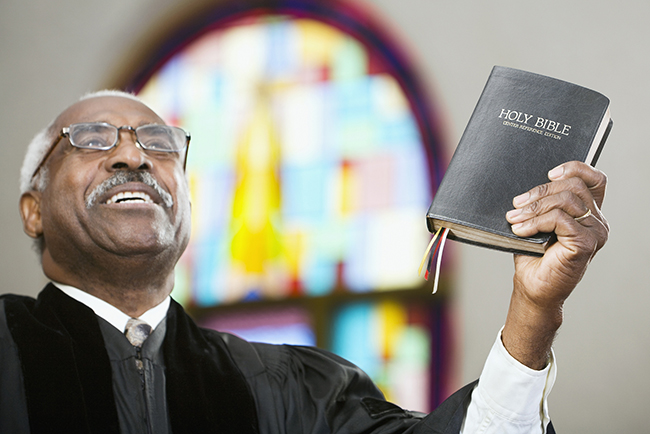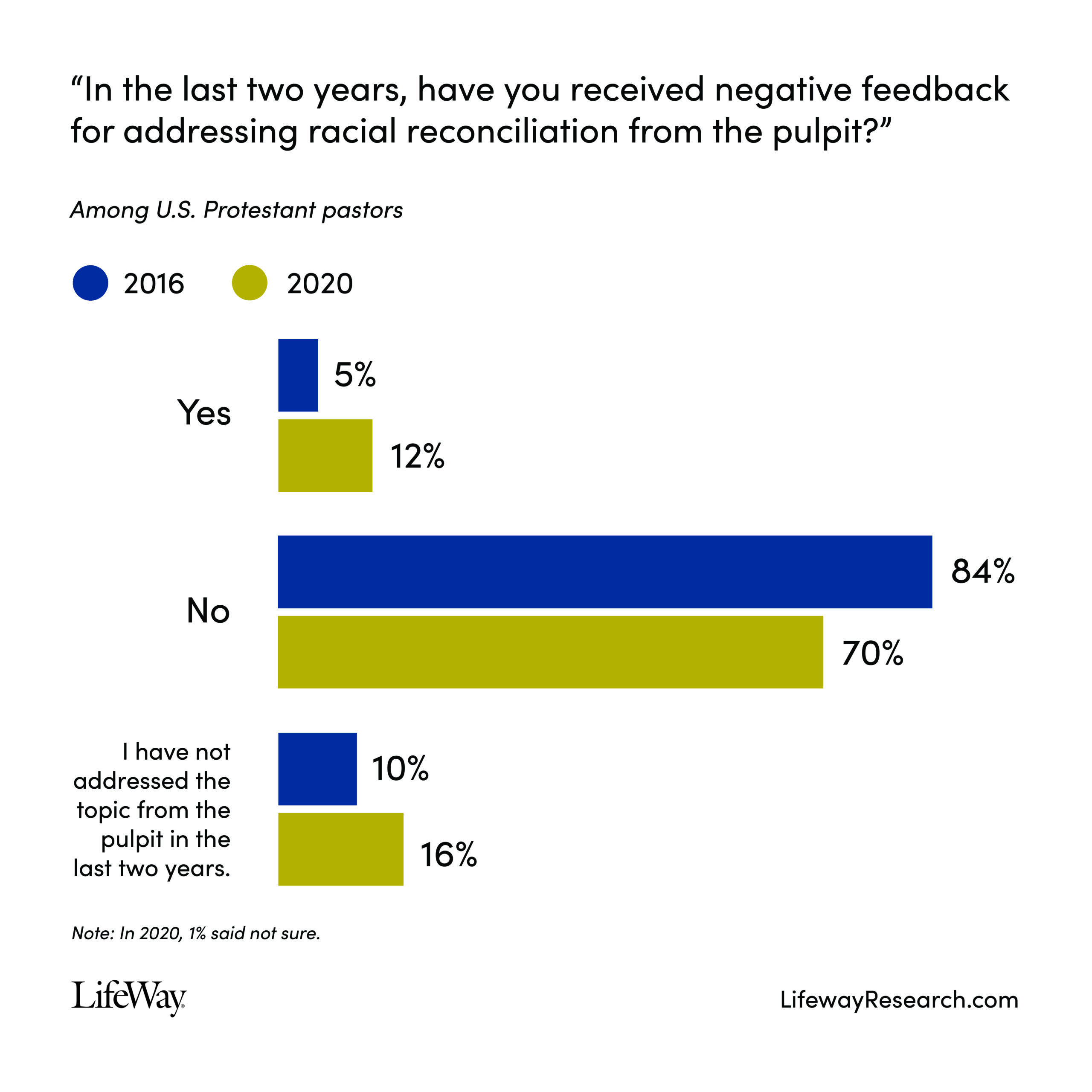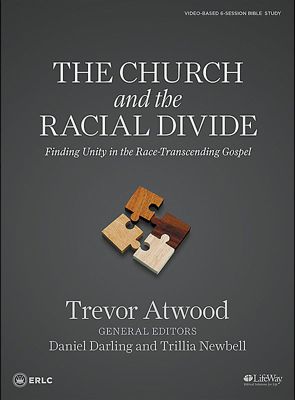
By Aaron Earls
Pastors who have already preached on issues of race, including pastors who have received negative feedback for those sermons, believe their congregation would welcome more on the topic. Meanwhile, those who have stayed away from the topic are more divided.
Analysis of a Lifeway Research study of pastors on racial reconciliation finds the agreement between pastors who have preached on the topic in the past two years. Of those who did not receive any negative feedback from their sermon, 82% believe their church would welcome another sermon on the topic, while 12% disagree.
Even among pastors who actually did receive negative feedback, 76% say their church would be open to sermons on racial reconciliation again. Around 1 in 5 (19%) disagree.
Even among pastors who received negative feedback for a sermon on racial reconciliation, 76% say their church would be open to sermons on the topic again. Click To TweetThe pastors who have not addressed the topic from the pulpit in the past two years are the only pastors in which a majority don’t believe their church would welcome such a sermon. Among those who have not preached on racial reconciliation, 37% believe their church would welcome such a sermon, 39% disagree, and 24% aren’t sure.
Overall, 74% of pastors believe their church would welcome a sermon on racial reconciliation, down from 90% in 2016. Most pastors (70%) have preached on the subject in the past two years and have not heard negative feedback. Fewer say they’ve not addressed it (16%) or have addressed it and faced criticism for it (12%).

Reconciliation reaction
As a pastor of Renewal Church, a multiethnic church in Warren, Mich., Wayne Stapleton says he has preached on racial reconciliation this year, but doesn’t do so often, though he does allude more frequently to “our walking together in Christ.”
He describes the response to his sermon on the topic as mixed. Generally, he says the people in his church respond to sermons on racial reconciliation well, but there is occasionally pushback with some comments behind his back and others wanting to have lunch to lay out their viewpoint.
Stapleton also says there have been moments of genuine reflection and repentance from some in the congregation. He also believes his church is more open to sermons on the topic now.
For Mark Croston, the national director of Black Church Ministries at Lifeway, preaching on racial reconciliation has caused him not be invited back to some pulpits, but he has also heard from minority members of large churches that thanked him for saying things they felt but did not feel free to voice themselves.
The Lifeway Research study found Black pastors are more likely than white pastors to say their church would welcome a sermon on racial reconciliation (93% to 73%). Croston says he has seen these different reactions play out noting he gets “big ‘Amens’” in Black churches and whispered “Thank you’s” in white churches.
The Black church sees the pastors as called by God and therefore free to preach on any topics addressed in the Bible unhindered. Rarely is there push back on any biblical topic the pastor preaches. — @crostonmin Click To TweetHe also says it has to do with perspectives in various church traditions. “The pulpit in the Black church is free,” he says. “By this I mean that generally, the Black church sees the pastors as called by God and therefore free to preach on any topics addressed in the Bible unhindered. Rarely is there push back on any biblical topic the pastor preaches. That’s his purpose.”
Why continue?
For Stapleton, preaching on the subject of racial reconciliation is important because “the church has different races in it, it has people suffering from past and present racism, and Jesus prayed that we would be one and we are not.” He notes, “There is trauma related to race in the church and we preach a message of healing and hope. It is spiritual malpractice to ignore the trauma of racism but try to point to point to the abundant life of Christ.”
Croston agrees that racism and reconciliation must be addressed from the pulpit because “racism is a sin.” He says reconciliation is important as it “addresses the oppressive systems that exist in the world and it pushes us to become what God has called us to be.”
The issue is connected to the mission and purpose of the church, according to Croston. “The evangelistic goal of the church is to begin the creation of the heavenly kingdom here on earth,” he says. “Matthew 6:10 lays out the challenge, ‘Your kingdom come. Your will be done on earth as it is in heaven.’ The completion of the goal is seen in Revelation 7:9: ‘After this I looked, and there was a vast multitude from every nation, tribe, people, and language, which no one could number, standing before the throne and before the Lamb. They were clothed in white robes with palm branches in their hands.’ This clearly cannot be accomplished without racial reconciliation.”
As pastors broach the topic in a sermon, Stapleton encourages them to keep in mind that “the Holy Spirit heals and He desires unity that helps us work through racial trauma and racial disunity.”
Pastors cannot do this job unless we are willing to lose this job. — @crostonmin Click To TweetCroston admits “racial reconciliation is not always an easy topic,” but pastors are called to preach God’s Word. “The truth is, we cannot do this job unless we are willing to lose this job,” he says. “But if we stand, without compromise, on the Word of God, we will hear Him say, ‘Well done, good and faithful servant!’”









